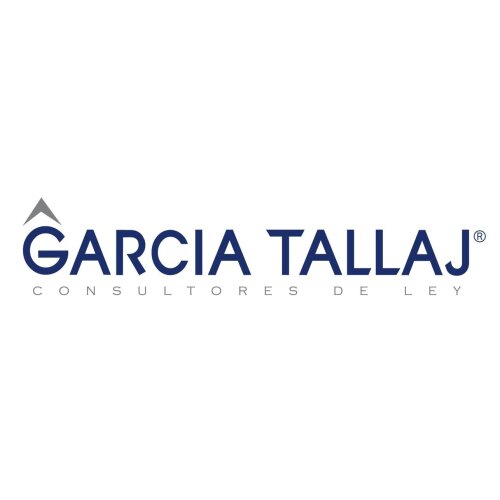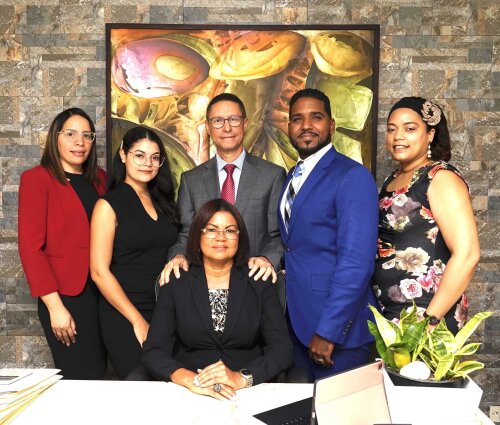Best Franchising Lawyers in Sosua, Cabarete
Share your needs with us, get contacted by law firms.
Free. Takes 2 min.
List of the best lawyers in Sosua, Cabarete, Dominican Republic
About Franchising Law in Sosua, Cabarete, Dominican Republic
Franchising in Sosua and Cabarete, located in the Puerto Plata province of the Dominican Republic, has witnessed significant growth due to thriving tourism and a dynamic business environment. The region attracts both local entrepreneurs and foreign investors who are interested in operating successful businesses under well-known brands. Franchising offers an opportunity to start a business with a proven model, established reputation, and ongoing support. However, like all business activities, franchising is subject to specific legal requirements, local regulations, and contractual obligations that need to be carefully understood and complied with.
Why You May Need a Lawyer
Navigating the legal landscape of franchising can be complex, especially in Sosua and Cabarete where local customs and regulations can differ from those in other countries or even elsewhere in the Dominican Republic. Here are common situations where legal assistance is essential:
- Reviewing and negotiating franchise agreements to ensure your interests are protected
- Ensuring compliance with Dominican Republic franchise laws and regulations
- Registering your business properly and obtaining all necessary permits and licenses
- Understanding tax obligations for franchisees or franchisors
- Resolving disputes between franchisors and franchisees
- Assisting with lease agreements for commercial premises
- Protecting intellectual property such as trademarks and trade names
- Handling cross-border transactions and remittance of franchise fees
A lawyer with expertise in Dominican franchising can guide you through the entire process, help avoid costly mistakes, and provide peace of mind as you start or expand your business.
Local Laws Overview
Franchising in the Dominican Republic is mainly governed by general commercial law, contract law, consumer protection statutes, and intellectual property regulations. There is no specific franchise law in the country, so the following legal frameworks are particularly relevant:
- Law 173 on the Protection of Agents and Distributors, which may impact franchise relationships, especially regarding termination and compensation
- General contract principles under the Civil Code, which govern franchise agreements
- Intellectual Property Law 20-00, ensuring protection for brands, trademarks, and trade secrets
- Consumer Protection Law 358-05, which applies to business practices and customer rights
- Tax regulations related to corporate income, value-added tax (ITBIS), and remittance of franchise fees to foreign franchisors
- Local municipal requirements for obtaining business licenses and operating permits in Sosua or Cabarete
Foreign investors should also consider regulations related to repatriation of profits, restrictions on foreign ownership in certain sectors, and the importance of properly drafting and translating franchise documents for legal validity.
Frequently Asked Questions
What is required to open a franchise in Sosua or Cabarete?
You will generally need to sign a franchise agreement, register your business, obtain local permits, and ensure compliance with tax and labor laws. A feasibility study and thorough due diligence are also recommended.
Are there restrictions on foreign franchise owners?
Foreigners can own franchises in the Dominican Republic, but must comply with business registration and, in some cases, sector-specific investment rules. Certain industries may have restrictions or additional requirements for foreign participation.
Do franchise agreements need to be in Spanish?
Yes, legal documents including franchise agreements should be drafted or officially translated into Spanish to be enforceable in Dominican courts.
Are there disclosure requirements for franchisors?
While there is no formal franchise disclosure law, best practice and consumer protection regulations encourage transparency. Franchisors are expected to provide detailed information to potential franchisees before any agreement is concluded.
How are franchise fees and royalties taxed?
Royalties and franchise fees paid to foreign franchisors are subject to withholding tax. Corporate income and VAT may also apply to franchise operations locally.
Can a franchise be terminated at any time?
Termination is typically governed by the terms of the franchise agreement, but Law 173 may provide protections to the franchisee or distributor, particularly regarding fair notice and compensation.
What happens if a dispute arises between franchisor and franchisee?
Disputes may be resolved through negotiation, mediation, arbitration, or litigation. The chosen method should be specified in the franchise agreement, and local courts may be involved if necessary.
Is it necessary to protect trademarks locally?
Yes, to safeguard your brand, trademarks should be registered with the Dominican National Office of Industrial Property to prevent misuse by others.
What local permits are needed to operate a franchise?
Typical permits include the municipal business license (Patente Municipal), health and sanitation certifications, signage approvals, and sector-specific operating licenses depending on the business.
What are common mistakes to avoid in franchising?
Not conducting due diligence, overlooking legal and tax obligations, failing to translate contracts, ignoring local business culture, and not protecting intellectual property are frequent errors. Legal guidance can help prevent these issues.
Additional Resources
Several resources are available to those interested in franchising in Sosua or Cabarete:
- Ministry of Industry and Commerce (Ministerio de Industria y Comercio)
- Chamber of Commerce of Puerto Plata
- National Office of Industrial Property (ONAPI) for trademark registration
- Dominican Franchise Association (Asociación Dominicana de Franquicias)
- Local municipal government offices in Sosua and Cabarete for business permits
- Consumer Protection Agency (PRO CONSUMIDOR)
- Reputable local law firms with experience in franchising and business law
Engaging with these bodies can provide valuable information, support with registrations, and updated legal requirements.
Next Steps
If you are considering entering the franchising market in Sosua or Cabarete, start by researching potential franchise opportunities and assessing their compatibility with your goals. Consult a qualified local lawyer who specializes in franchising and business law to review your chosen franchise agreement, guide you through registration, and ensure full legal compliance. Prepare all necessary documents in Spanish and gather information on permits and taxes required for your specific business type. Finally, stay informed about any changes in local regulations by engaging with business associations and governmental bodies. Taking these steps can help you build a successful franchise in this vibrant region of the Dominican Republic.
Lawzana helps you find the best lawyers and law firms in Sosua, Cabarete through a curated and pre-screened list of qualified legal professionals. Our platform offers rankings and detailed profiles of attorneys and law firms, allowing you to compare based on practice areas, including Franchising, experience, and client feedback.
Each profile includes a description of the firm's areas of practice, client reviews, team members and partners, year of establishment, spoken languages, office locations, contact information, social media presence, and any published articles or resources. Most firms on our platform speak English and are experienced in both local and international legal matters.
Get a quote from top-rated law firms in Sosua, Cabarete, Dominican Republic — quickly, securely, and without unnecessary hassle.
Disclaimer:
The information provided on this page is for general informational purposes only and does not constitute legal advice. While we strive to ensure the accuracy and relevance of the content, legal information may change over time, and interpretations of the law can vary. You should always consult with a qualified legal professional for advice specific to your situation.
We disclaim all liability for actions taken or not taken based on the content of this page. If you believe any information is incorrect or outdated, please contact us, and we will review and update it where appropriate.









